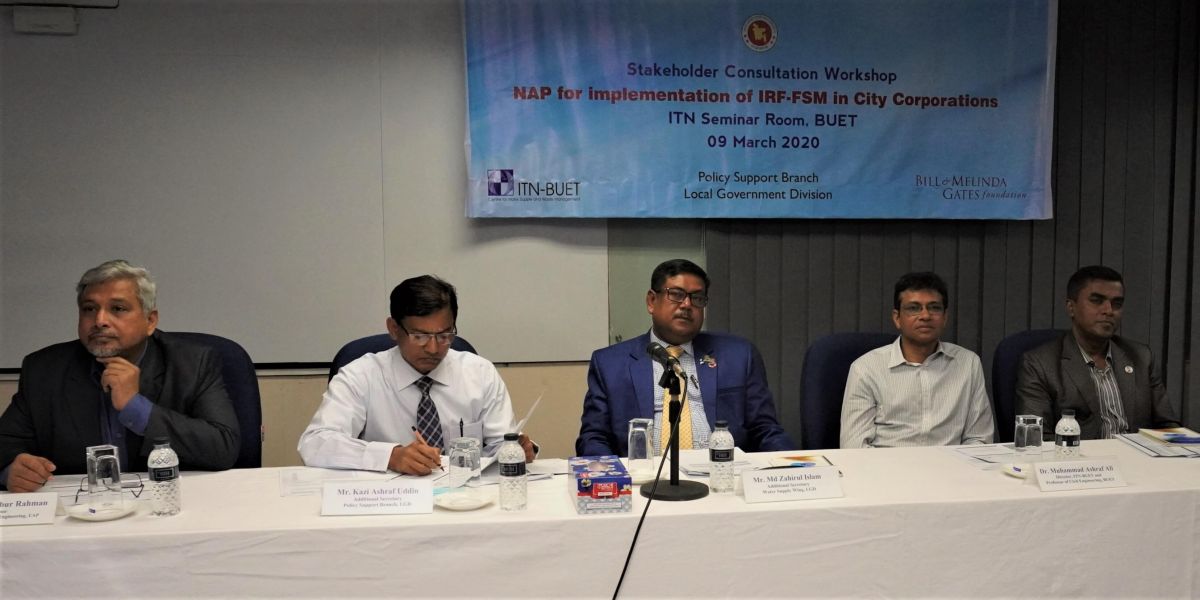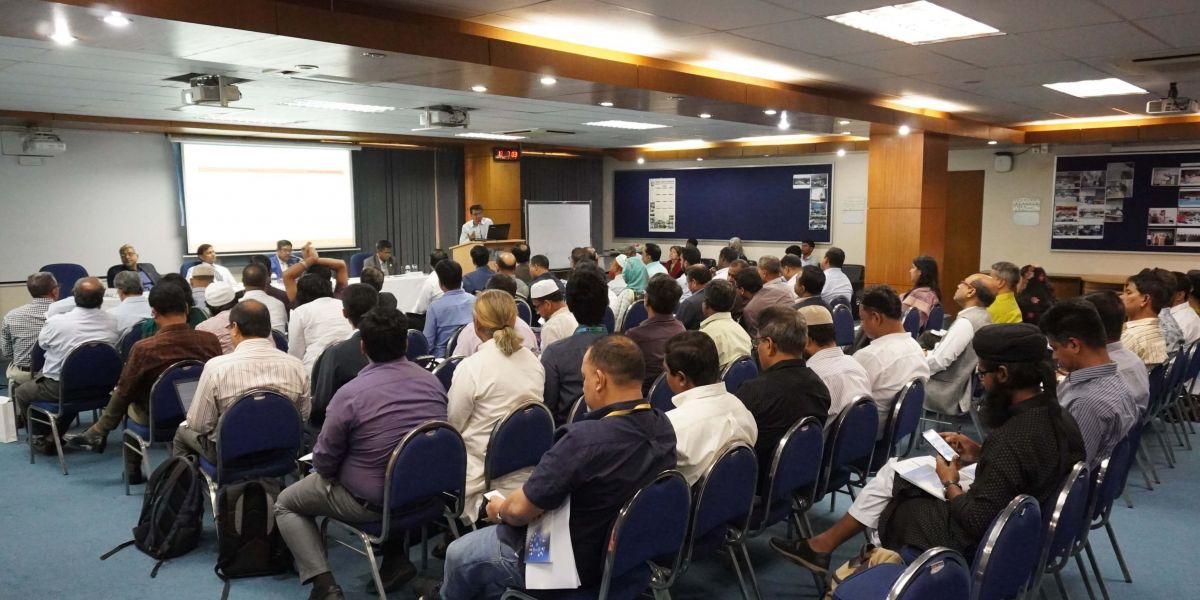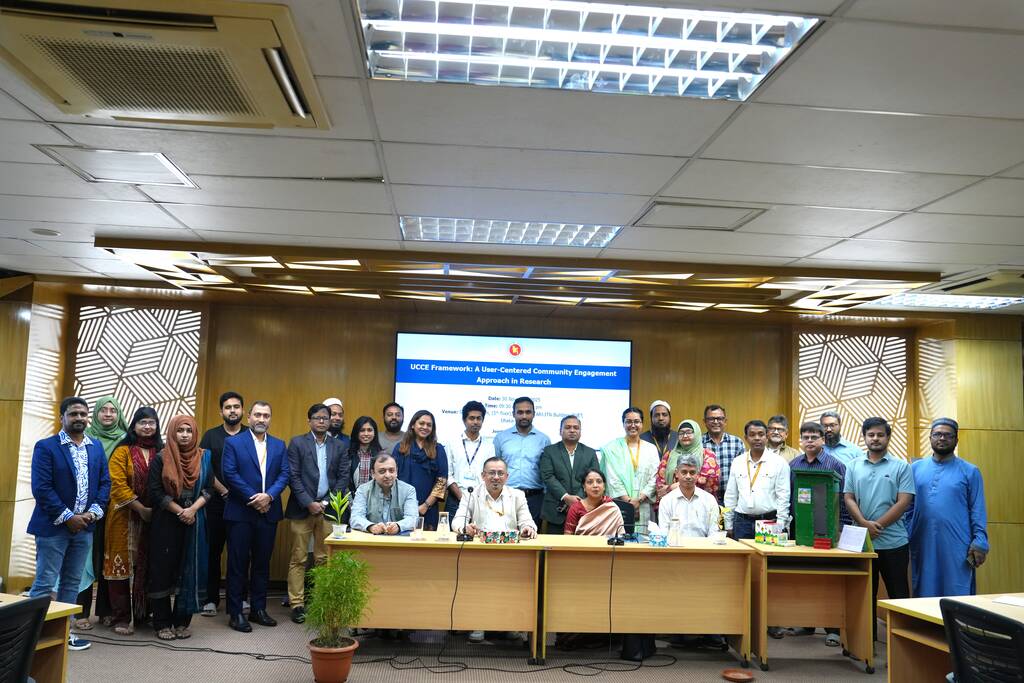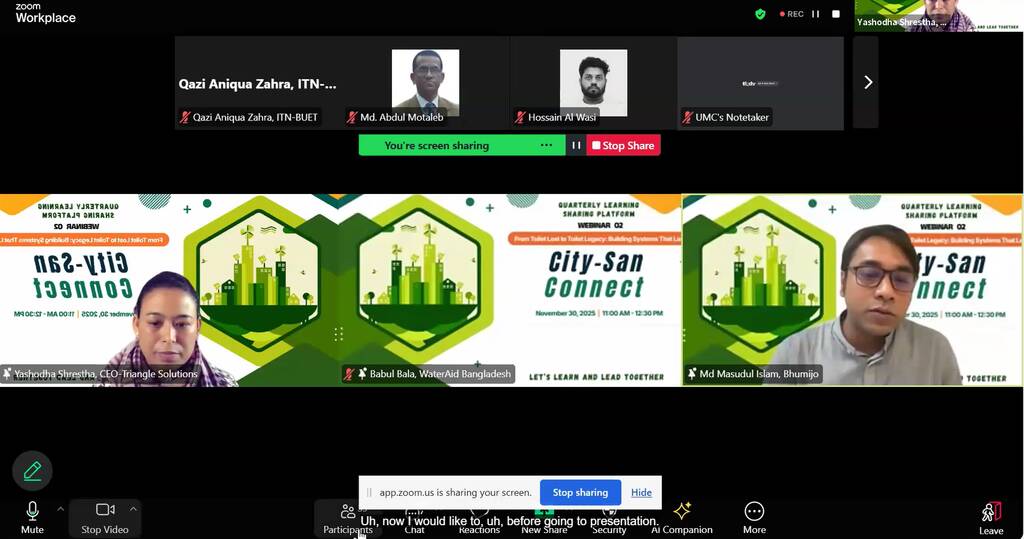Speakers urged for effective coordination among the different agencies working in City Corporations for successful implementation of Institutional and Regulatory Framework for Faecal Sludge Management (IRF-FSM) at the National Consultation Workshop on Development of a National Action Plan (NAP) for Implementation of IRF-FSM for City Corporations held on 9th March, 2020 at ITN-BUET. The need of affordable and acceptable technology was also highlighted in the workshop. Mr. Md. Zahirul Islam, Additional Secretary, Local Government Division (LGD), Ministry of LGRDC chaired the workshop.

Dr. Muhammad Ashraf Ali, Director, ITN-BUET and Member Secretary of the Working Committee presented the draft action plan focusing on the main activities. He also thanked the stakeholders for their valuable feedbacks and constant support to develop this action plan. In his presentation, Dr. Ashraf emphasized on national level coordination to ensure safely managed sanitation for all.
Mr. Md. Zahirul Islam told building sewerage network all over the city corporations is a matter of huge investment and time. But we have to ensure safely managed sanitation as earliest possible time. The government is highly committed to achieve SDG agenda by 2030. It is high time we thought of a sustainable FSM system for our cities to achieve our targets for safe countrywide sanitation.
In his speech Mr. Kazi Ashraf Uddin, Additional Secretary, Policy Support Branch (PSB) of LGD discussed about the background of working committee and the procedures of developing the draft national action plan. He informed the participants that the ministry has already approved the National Action Plan for Paurashavas and rural areas. Officials from different city corporations, DPHE, academia, I/NGOs and sector partners attended the workshop and gave their valuable feedback on the draft action plan.

At the end of the event Prof. Dr. Mujibur Rahman, Advisor, ITN-BUET said that,
“We have to consider both on-site and network based sanitation for ensuring public health. He expected that with the leadership of LGD, coordination among city corporations, WASAs, development authorities and other agencies will be ensured.”





